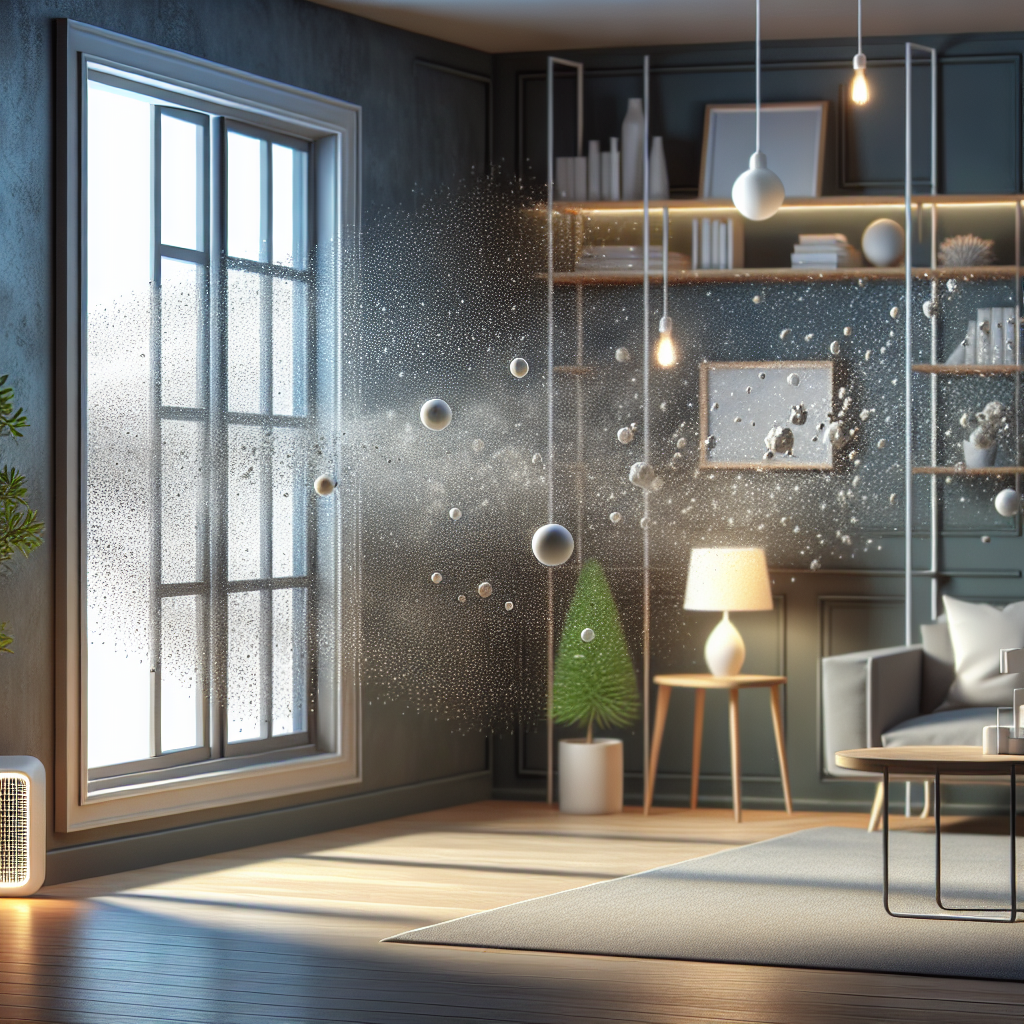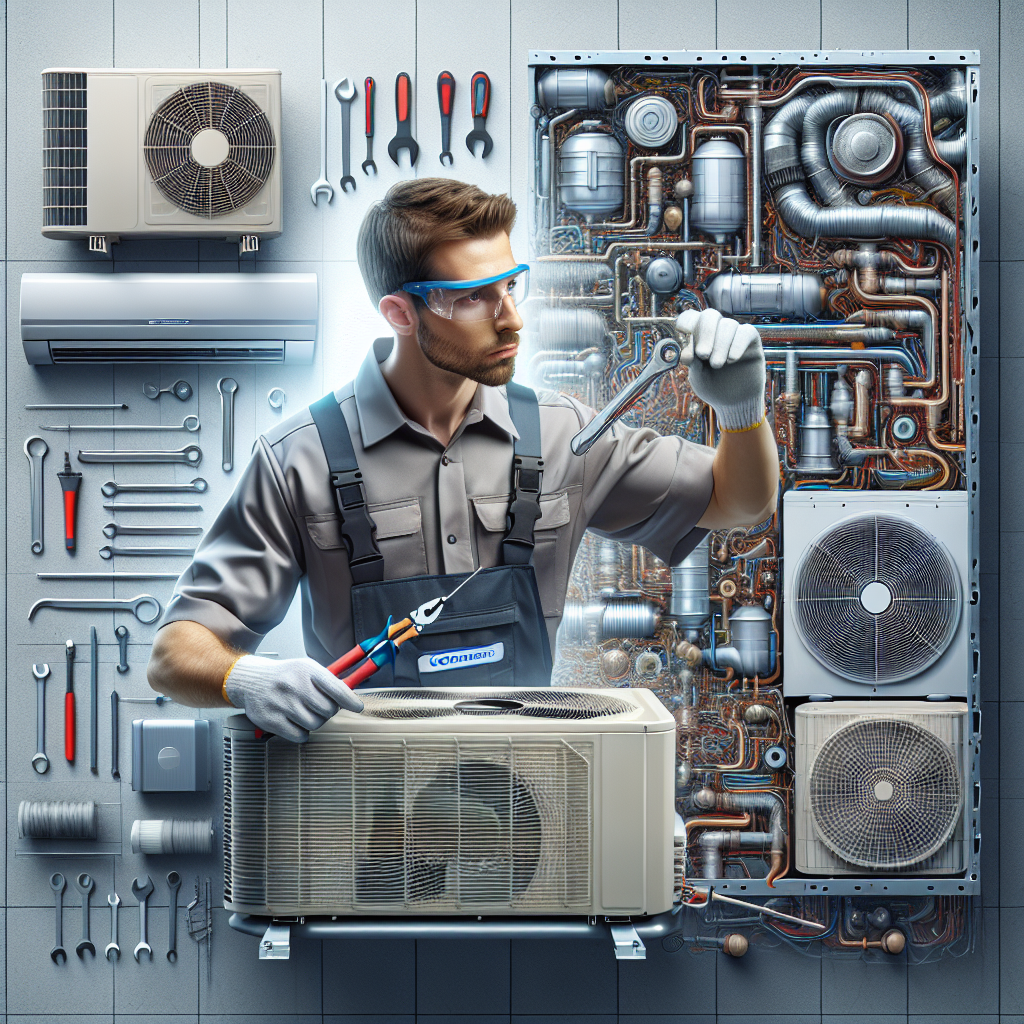Your cart is currently empty!
Tag: Air

How Ventilation Impacts Indoor Air Quality
Indoor air quality is a crucial aspect of our daily lives, as we spend a significant amount of time indoors, whether at home or in the workplace. One key factor that greatly impacts indoor air quality is ventilation. Ventilation refers to the process of exchanging indoor air with outdoor air, which helps to remove pollutants and odors while also replenishing oxygen levels.Proper ventilation is essential for maintaining good indoor air quality. When a building is poorly ventilated, harmful pollutants such as carbon monoxide, volatile organic compounds (VOCs), and particulate matter can build up, leading to a range of health issues such as headaches, fatigue, respiratory problems, and allergies. In extreme cases, poor indoor air quality can even contribute to serious health conditions such as asthma and cardiovascular disease.
On the other hand, adequate ventilation helps to dilute and remove these pollutants, creating a healthier indoor environment. Ventilation also helps to control humidity levels, which can prevent the growth of mold and mildew, as well as reduce the spread of airborne viruses and bacteria.
There are several factors that can impact the effectiveness of ventilation in a building. The design and layout of the building, as well as the type of ventilation system used, all play a role in determining how well indoor air quality is maintained. In addition, factors such as the number of occupants in a building, the type of activities taking place indoors, and the presence of indoor pollutants can also affect ventilation efficiency.
There are several ways to improve ventilation and indoor air quality in a building. One effective method is to install mechanical ventilation systems that can help to remove stale air and bring in fresh outdoor air. These systems can be designed to provide continuous ventilation or can be operated on a timer or in response to indoor air quality sensors.
Natural ventilation is another option for improving indoor air quality, which involves opening windows and doors to allow fresh air to enter the building. However, natural ventilation may not always be sufficient, especially in buildings located in urban areas with high levels of outdoor air pollution.
In conclusion, ventilation plays a crucial role in maintaining good indoor air quality. By ensuring proper ventilation in buildings, we can create a healthier and more comfortable indoor environment for occupants. It is important for building owners and managers to prioritize ventilation systems and regularly maintain them to ensure optimal indoor air quality for all occupants.

The Importance of Regular Air Conditioning Maintenance
Air conditioning is a vital component of any home or business, especially during the hot summer months. It helps to keep us cool, comfortable, and productive. However, in order for your air conditioning system to work efficiently and effectively, regular maintenance is essential.Regular air conditioning maintenance is important for several reasons. Firstly, it helps to ensure that your system is running at its peak performance. Over time, dust, dirt, and debris can build up in your system, causing it to work harder and ultimately, less efficiently. By regularly cleaning and maintaining your air conditioning system, you can help to improve its efficiency and extend its lifespan.
Secondly, regular maintenance can help to prevent costly breakdowns and repairs. By having a professional HVAC technician inspect and service your system on a regular basis, they can identify and address any potential issues before they escalate into major problems. This can save you both time and money in the long run.
Additionally, regular air conditioning maintenance can help to improve the air quality in your home or business. A dirty or clogged air conditioning system can circulate allergens, dust, and other pollutants throughout your indoor space, leading to poor indoor air quality. By keeping your system clean and well-maintained, you can help to ensure that you and your family or employees are breathing in clean, healthy air.
Lastly, regular air conditioning maintenance can help to improve energy efficiency. A well-maintained system operates more efficiently, using less energy to cool your indoor space. This can lead to lower energy bills and reduced environmental impact.
In conclusion, regular air conditioning maintenance is essential for ensuring that your system is running efficiently, preventing costly breakdowns, improving indoor air quality, and reducing energy consumption. By scheduling regular maintenance with a professional HVAC technician, you can enjoy a comfortable and healthy indoor environment all year round.
